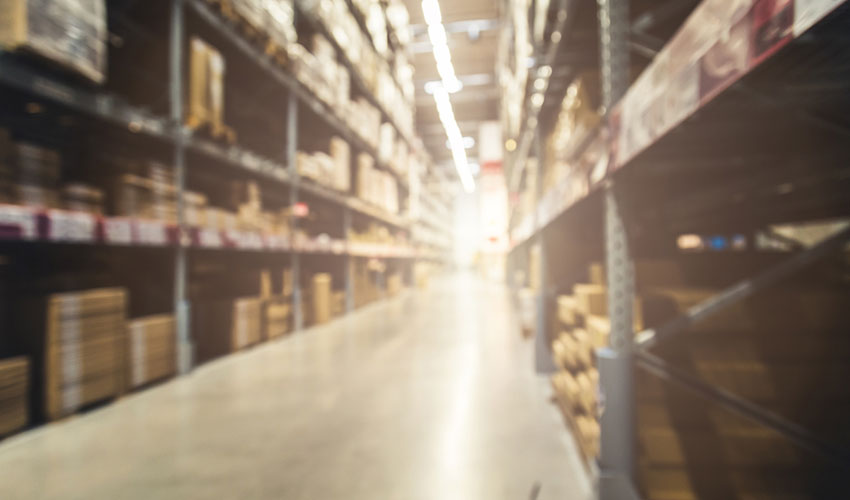10 questions to ask when selecting a wine storage facility

Whether your cellar has reached capacity, or you are looking to store a collection of age-worthy wines, selecting a wine storage facility that you can trust to protect your wine collection for years to come is a delicate task. Before you cellar your collection at a wine storage facility, confirm that the facility is committed to maintaining ideal storage conditions and has taken all the necessary precautions to protect your wine. Here are ten essential questions to determine whether or not the wine storage facility upholds best practices:
-
How is temperature and humidity controlled and monitored?
As wine requires a specific climate to avoid spoiling and age properly, it is vital that the facility centrally monitor both temperature and humidity. Central monitoring of the climate ensures the facility staff is immediately notified, including during off-hours, in the event the temperature or humidity rise or fall outside a specified range. Your wine storage facility should also be prepared to maintain temperature and humidity in the event of power failure; they should have a back-up generator to ensure your wine collection is stored at the appropriate temperature and humidity levels at all times.
Ideal wine storage conditions include:- Approximately 12°C
- Relative humidity of 60%
- Avoiding storage locations in the home where the wine could be exposed to vibrations, heat or water damage, such as near a staircase, kitchen, or furnace
- Cellaring your collection in a dark space as light can damage wine and fade label
-
How is the collection packed and inventoried?
All items located in open storage should have an identification label or tracking number on them, and the warehouse should maintain a complete and updated inventory of all items, including those in open storage. Some wine storage facilities inventory individual bottles as well as cases.
-
What are the qualifications of the staff?
Everyone working at the storage facility should be properly trained and qualified to care for and handle your wine collection. The facility should also perform thorough background checks on all personnel prior to hiring them.
-
How is the building secured?
Wine storage facilities should have a centrally monitored burglar and fire alarm system. Burglar alarm components should be layered with both perimeter and internal burglar alarm components, which typically includes a combination of motion sensors and alarm contacts. All entrances should be alarmed, and protocols should be in place to restrict access, including to visitors and staff. Surveillance cameras should be monitored for suspicious activity, and recordings should be saved externally for 30 days at a minimum.

-
Does the wine storage facility have a low profile?
Thieves are becoming more aware of the value of wine, and wine storage facilities are known targets. To prevent break-ins and burglaries, many wine storage facilities keep minimal signage on the exterior of the building and have enclosed loading bays for all shipments processed. These precautions help conceal the facility’s activity and the values stored inside.
-
How is my wine protected from fire?
The facility should have a centrally monitored fire sprinkler system and/or smoke detection system with sprinkler heads or smoke detectors placed throughout the wine storage areas. Also confirm that fire extinguishers have been placed throughout the building and are easily accessible.
-
What neighbours the storage facility and does the facility have a contingency plan in place?
Reconsider storing your fine wine in a building located next to other businesses that may create risks, such as an area prone to natural disasters or next to a gas station. If these risks can’t be avoided, confirm that the building management has a disaster preparedness plan in place and has taken necessary steps to protect your collection against known risks. For example, a process should be in place for floods and the facility should have a contingency plan to relocate your collection to a secondary location should the warehouse be compromised.
-
Are building systems routinely maintained?
Before you move your wine collection, confirm that the storage facility is well maintained, with routine schedules to inspect and repair the electrical, plumbing, HVAC systems, and roof. You should also confirm they have water leak detection devices installed on HVAC units, as well as near any other sources of water, to prevent possible water damage.
-
Do the alarm systems have dual path communication?
Each of the centrally monitored alarm systems (including climate, smoke detection, security, and fire sprinkler) should have dual path communication with the alarm monitoring company in the event the primary means of communication has been cut off, whether unintentionally, as with a weather-related event, or intentionally by a burglar.
-
Has the wine storage facility been vetted by my Insurance Carrier?
If looking for additional guidance, ask your insurance carrier for their recommendations to local wine storage facilities. If the carrier has a vetted network, such as Chubb’s Trusted Service Network, confirm with your agent or broker that the facility has been considered and is included.
And finally, as you prepare to move your collection into off-site storage, confirm with your insurance agent or broker that your wine will be covered both in transit and while stored at the facility.
No part of this article may be reproduced in any written, electronic, recording, or printed form without written permission of Chubb.
Disclaimer - The content of the above article is not intended to constitute professional advice. Although all content is believed to be accurate, Chubb Insurance Singapore Limited (Chubb) makes no warranty or guarantee about the accuracy, completeness, or adequacy of the content of this article. Users relying on any content do so at their own risk.

Protect your home and valuables
Get a quote online or leave your contact details and our representatives will get in touch with you.